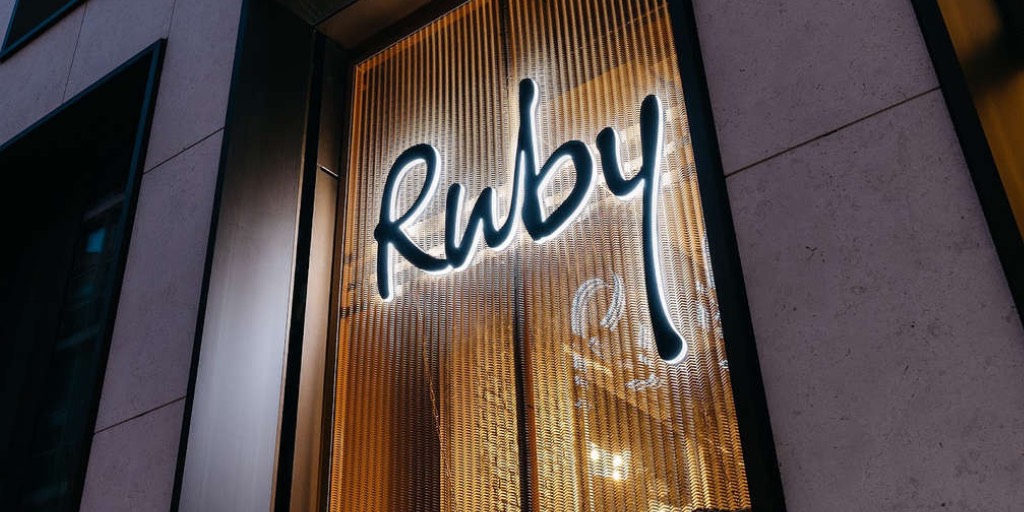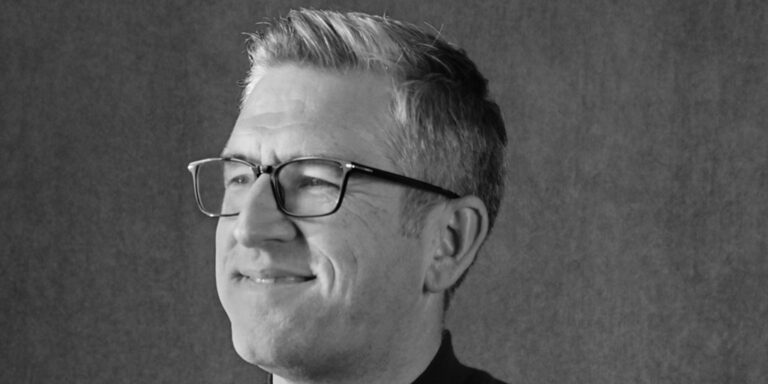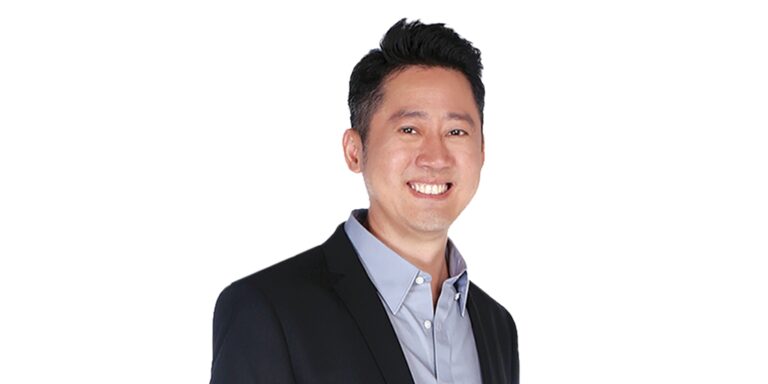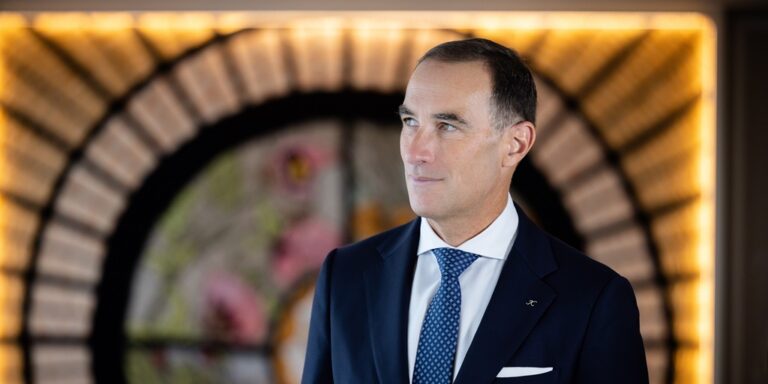Michael Struck detailed how precisely choosing each microlocation for its city properties and individually tailoring each site is a winning formula.
Flexible approach
When Struck established Ruby Hotels in Germany in 2013, he did so with a clear idea of how the brand could fit into almost any urban location and utilise existing buildings. “One of the things I created was a modular architectural geometry that allows us to work with more than 100 different room shapes,” he said.
“We always look to find spaces in locations that we find interesting and we think our guests will find inspiring. Typically they are buildings in gentrifying, central areas and in order to get those spaces we’re flexible. Our expertise is working within existing building fabric.”
Complementary elements
This modular approach enables largely historical property conversions, with Ruby weaving in contemporary design that reflects each neighbourhood, and often taking up areas on non-adjoining floors.
Struck believes this space separation works to the brand’s advantage: “Mixed use is something that comes with these locations and we cherish that. We have complementary elements to our format such as workspaces – they are a separate product but we only do them in combination with hotels, because we don’t want to take our focus off our core hotel business. It adds value to the hotel experience if we have locals as well as guests using workspaces.”
Another strand Ruby is aiming to weave in is an aparthotel-type concept. “We will mix that into our core product where it makes sense,” Struck commented. “So where you have lots of project workers who come to a place very frequently or stay for a month, we’ve engineered a product for people staying from five to 30 days. It’s not a full apartment, rather it’s more like a co-living notion with a communal kitchen, dining and working facilities.”
Exciting pipeline
Thus far, Ruby Hotels has outposts in European cities including Vienna, Austria; Dusseldorf, Germany; and Amsterdam, the Netherlands. With the nomenclature for every site reflecting female names and each hotel’s individuality, the brand’s pipeline includes the imminently opening Ruby Hanna, its first site in Stuttgart; Ruby Stella, London’s third addition due in Q1 2024; Ruby Bea, bringing the line to Italy with a Florentine location scheduled for Q1 2024; and a Dublin double comprising Ruby Molly in Q3 2024 and as an yet unnamed site on the Irish capital’s Middle Abbey Street following in Q4 2025.
“We’ve got some very exciting projects coming up and we always work very closely with our real estate partners, “ commented Struck. “My history has been in real estate as much as it’s been in operating and marketing hotels so I think my team and I have that understanding of real estate needs.”
Edinburgh challenges
Another upcoming site is the company’s first in Scotland, with a 347-key hotel in Edinburgh slated for Q4 2025. “Our Edinburgh property is an example of mixed use because it attaches to retail, it’s historically a retail building that’s been converted,” outlined Struck.
“So it comes with the challenges of very deep floor plates and different types of access floors that you would not usually have. It helps that we have a developer’s point of view to understand how to best combine uses and how to reorganise them and reach very high space efficiency.
“We also have in-house interior designers (though we work closely with local design agencies for our UK sites) which means what could usually be seen as a challenge can be an opportunity. The best designs we’ve created aren’t those that were easy, that’s really where we excel.”
Outside Europe
When asked if Ruby has looked outside European home ground to further expand its network, Struck responded: “Before covid struck we were just about to sign our first project in the USA and we were also in advanced discussions in Canada.
“But because of covid we now see a lot of opportunities in Europe. We have a very full pipeline and I don’t want to overstretch my team. So we’re going to wait to go to the States for about another year. For now we’re very happy.”
Chinese joint venture
Ruby is also opening several hotels in China this year as part of a joint venture with Hong Kong-headquartered Betterwood Group, where the European firm is the minority shareholder.
Betterwood will operate the sites, but Struck emphasised: “We work very closely with our partner because we want the product, the culture and the philosophy to be the same as here. We worked very hard at training the team, flying over to China and staying there very frequently. Because we want to have a local vibe in all our hotels, we didn’t want to lose that in China, and we won’t. The hotels will be as individualistic as we want them to be.”
Location criteria
In terms of how Ruby makes its location decisions, Struck revealed: “It doesn’t matter whether the site is a conversion or a newbuild, what really matters is the microlocation and the micromarket.
“For instance in London we are going to have four hotels and we’re looking for more. When I created Ruby, London was always on my mind because I have spent a lot of time there. But we make sure that the properties don’t cannibalise each other because we look for complementary microlocations. The best way to avoid a crisis is to stick with a stable market versus more peripheral segments.”
Core philosophy
Struck summed up the Ruby philosophy, saying: “Ruby was created for the cosmopolitan individualist. The opportunity is there for lean luxury because the price difference between that and ultra luxury is massive.
“We always make our decisions looking from the perspective of our target groups and what they need. We stick to our core hotel business and we see how we can develop synergistically, because we could branch out into all sorts of other areas, but the world hasn’t been waiting for us, there has to be a reason why we can do something better than anyone else.
“We understand how people like to stay in central locations in major cities for the short term and mid term and eventually we will be looking at the long term too. We are already working on long term accommodation concepts.”






